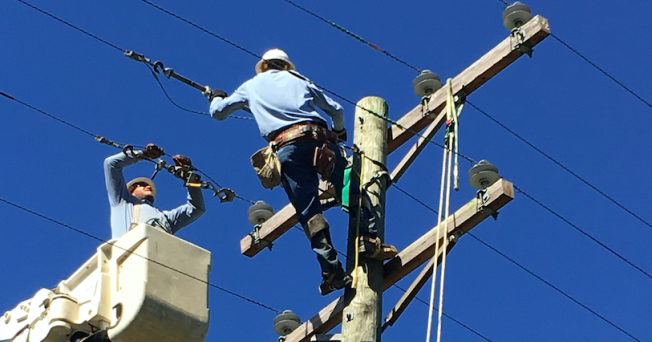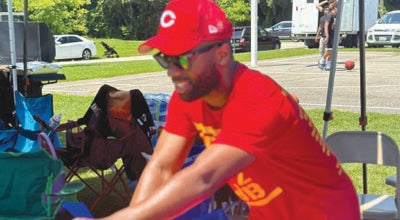Electric cooperatives withdraw complaints over broadband bills
Published 6:54 am Thursday, March 7, 2024

- Southside Electric Cooperative employees recently passed the two-year mark without a lost-time accident.
|
Getting your Trinity Audio player ready...
|
In February, electric cooperatives in Central and Southside Virginia brought out the pitchforks. From ads in the papers to guest opinion columns, the groups warned that two broadband bills ran the risk of increasing rates for customers. But now, one month later, both bills unanimously passed the Assembly, heading for the governor’s signature and cooperative officials say there’s no more concern. Changes in House Bill 800 and Senate Bill 713 made over the last month have addressed their issues.
“The bills were modified to address the concerns raised by electric cooperatives,” said Gage Harter, the Director of Communications for Virginia Association of Counties. “VACo fully supports the efforts of all parties in addressing this matter, including additional state funding for utility pole replacement to accommodate the necessary infrastructure to expand broadband service.”
When HB 800 was originally filed in January, it sought to apply Federal Communications Commission, or FCC, standards to the state’s electric cooperatives for public utility pole attachments and replacements. The legislation also prohibited the cooperatives from charging internet service providers the cost to replace the pole – which would have resulted in cooperatives footing the bill.
“The bill in its original form – the main point that we were contesting was the fact that it was doing a cost-shift where it was putting the cost of what it would cost to have the ISP establish broadband in our service territory was going to put that cost on the backs of our members,” said Ron White, the Vice President of Governmental and Regulatory Affairs for Southside Electric Cooperative.
The Virginia, Maryland and Delaware Association of Broadband Cooperatives issued a statement in January saying that the provisions of the bill were “deeply harmful to our co-ops and their members.”
What’s different now?
The version of the bill heading to the governor’s desk removes mention of FCC standards – instead asking cooperatives to adhere to pole attachment requirements set within the bill itself. It gives public utilities a timeline to review attachment requests, and allows them to pass the cost of a “taller or stronger pole” to ISPs. It also gives the State Corporation Commission the jurisdiction to “enforce its provisions and requires the Commission to resolve disputes involving pole access within 90 days and concerning certain other matters within 120 days.”
“We, along with other cooperatives in Virginia and our statewide association worked with, some of the patrons of this legislation, as well as members of the House and the Senate to make some changes that would help electric cooperatives take out the provisions that there’s some cost shifting but still work to enable that this legislation help promote and support broadband in the rural communities,” said Lloyd Lenhart, the Director of Governmental and Regulatory Affairs for Southside Electric Cooperative.
The cooperative services 18 counties, with over 8,400 miles of line. Many of the cooperative’s customers are located in rural parts of the state.
“Not just Southside, but all Virginia electric cooperatives understand how important bringing broadband to rural Virginia is. We worked with the patrons of the bill, we worked with the ISPs, we worked with all of the parties involved, and we were able to get to a point where we had peace in the valley,” said White.
Broadband issues and electric cooperatives
The issue of providing broadband was partially borne out of the pandemic, when students and parents worked remotely as schools and offices were shut down due to Covid-19. According to the Virginia Department of Health, many of Virginia’s rural communities struggle to provide affordable and accessible broadband connection. Nearly 29 percent of rural Virginia households have no internet service, as compared to 12 percent of non-rural households.
“This technology gap had always existed, but I think going through Covid amplified that exponentially and really brought a spotlight on the fact of how critical the asset of having broadband to be able to connect is,” said White. “It’s not just the luxuries. It is something that is needed for households to function.”





